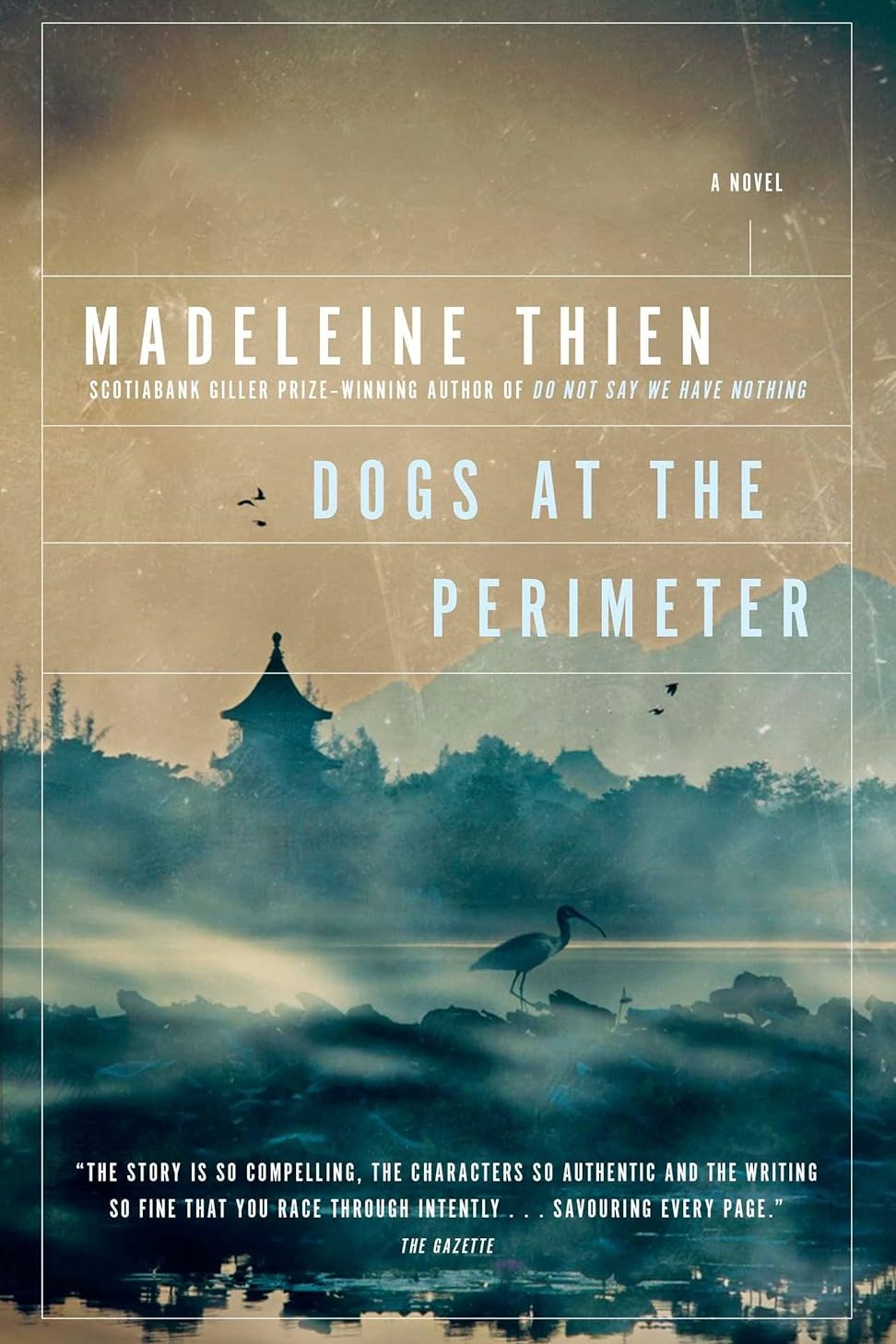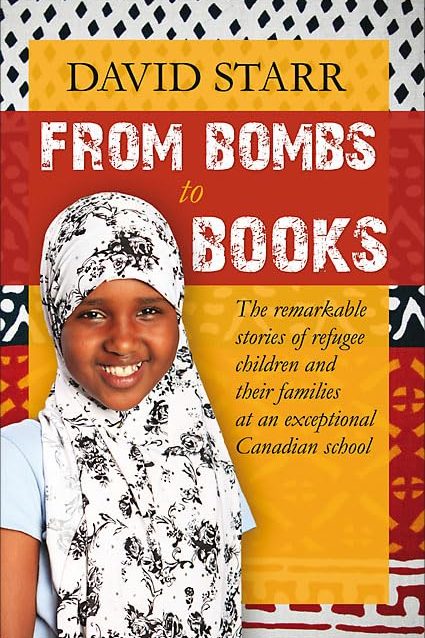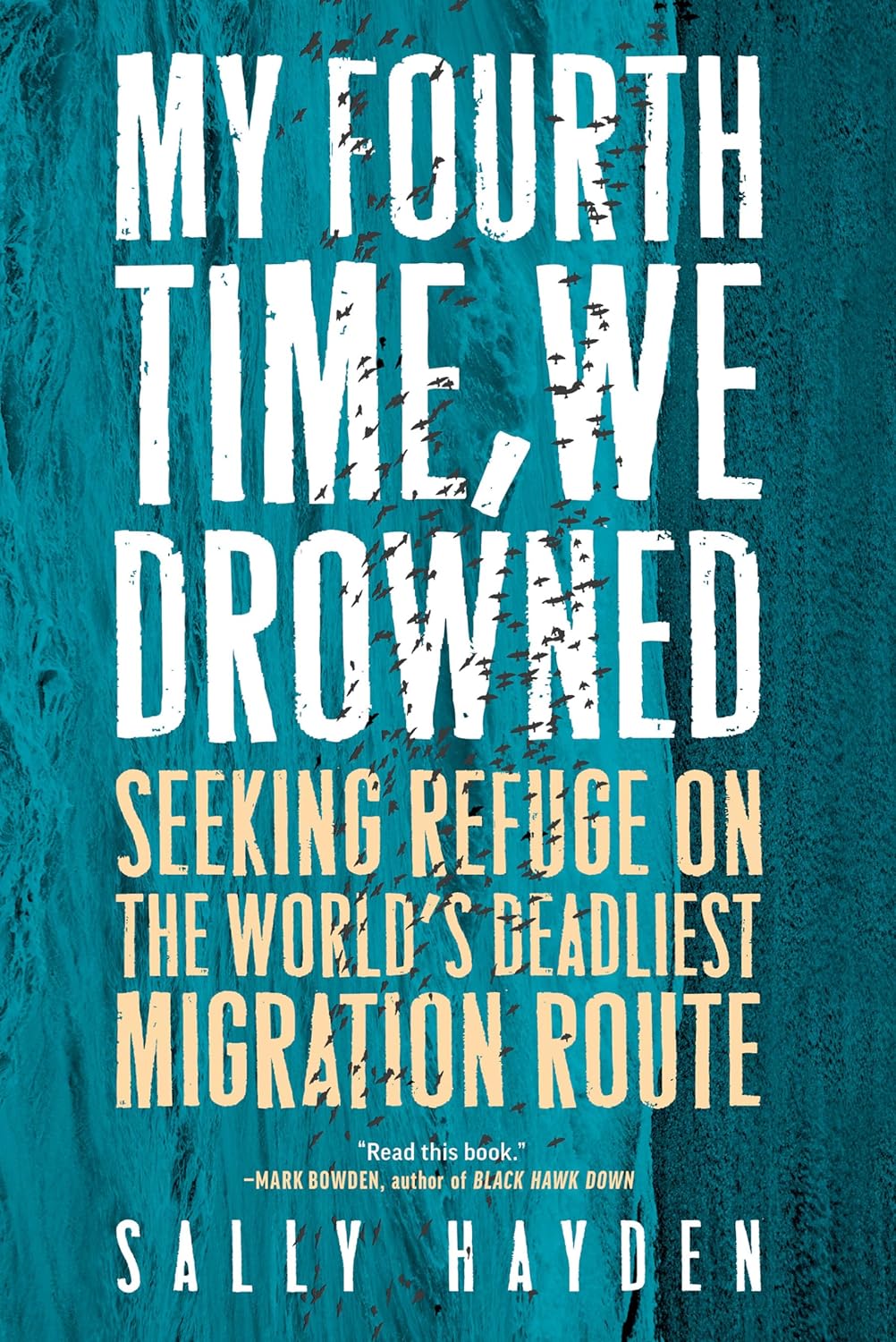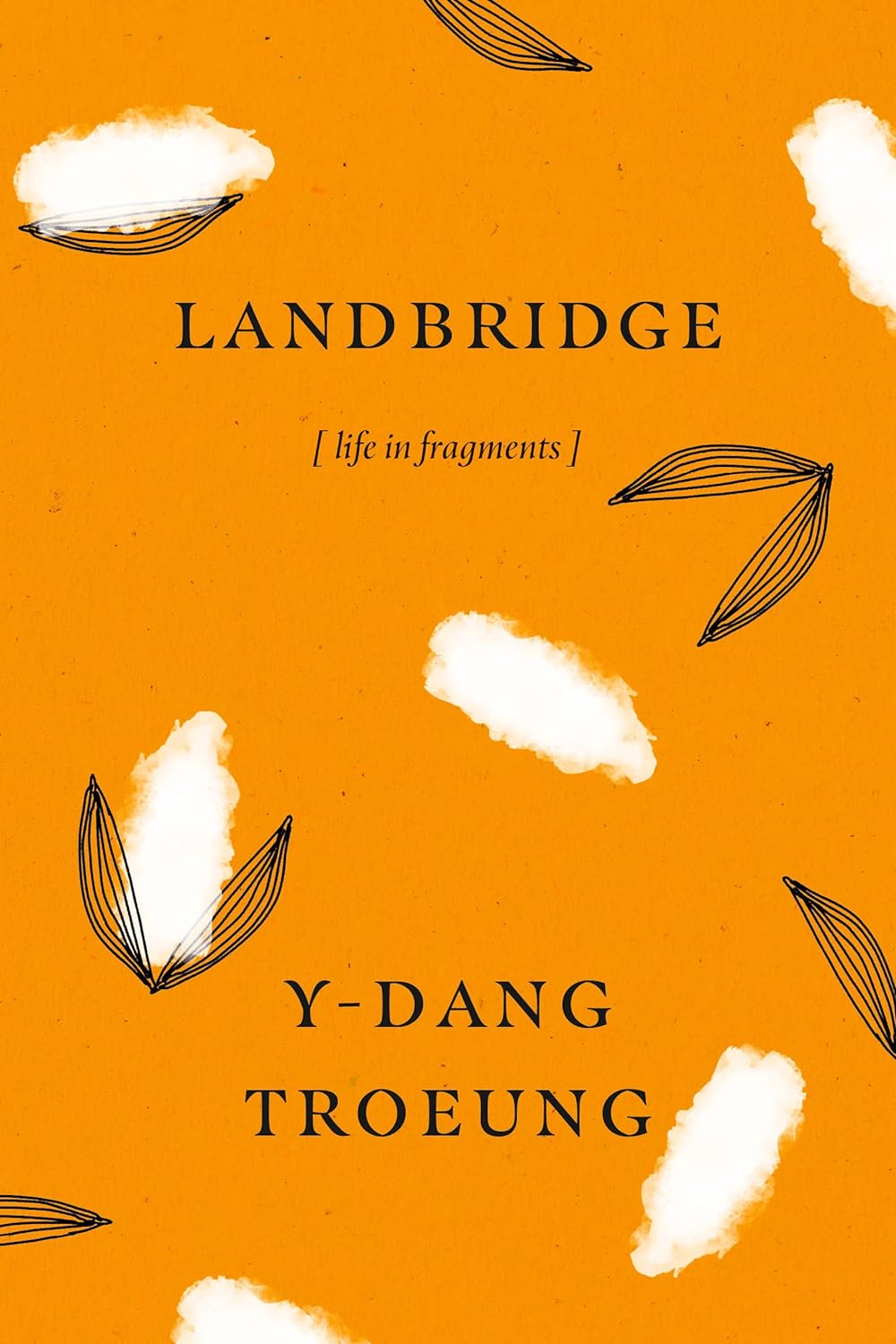Events
Research Voices from the Field with Rabia Khan

Research Voices from the Field is a new feature that showcases cutting-edge research that breaks barriers and promotes inclusion in medicine. Each edition spotlights a research publication and includes insights directly from the authors—revealing their motivations, the significance of their findings, and why the research matters for healthcare professionals everywhere.
In this edition, Rabia Khan, Scientist at the Centre for Health Education Scholarship and Assistant Professor in the Department of Pediatrics, reflects on why she co-authored “Constructing “Burnout”: A Critical Discourse Analysis of Burnout in Postgraduate Medical Education“, the first paper from her doctoral dissertation Dying to Stay Alive in Residency and Beyond, highlighting its relevance for policymakers, educators, leaders, and trainees.

Rabia Khan, Scientist at the Centre for Health Education Scholarship and Assistant Professor in the Department of Pediatrics, reflects on why she co-authored “Constructing “Burnout”: A Critical Discourse Analysis of Burnout in Postgraduate Medical Education“, highlighting its relevance for policymakers, educators, leaders, and trainees.
This paper is the first from my doctoral dissertation, “Dying to Stay Alive in Residency and Beyond: A Critical Discourse Analysis of Burnout”, in which I was trying to answer a pressing question: why does burnout persist, despite efforts to ameliorate it? This paper is not only relevant to policymakers, educators, and leaders but, more importantly, it’s a love letter to trainees. Through my research, I found that while ‘burnout’ impacts everyone, the way we talk about it often doesn’t reflect the lived experiences of those most affected.
This is exacerbated by the finding that there are more studies quantifying the amount of burnout or proposing solutions to burnout, then there are trying to understand how and why this effects health workers in the way that it does. In this paper, I highlight how workplace culture has been colonized and shaped by Western-centric notions like burnout—ideas that organizations can monitor, promote, and challenge at an individual level. But this depoliticization of health into a wellness issue has real consequences for health workers themselves. I argue that to mitigate burnout’s effects, we need to focus on cultural resiliency, not just individual resiliency. And more importantly, we must continue advocating for structural changes that are equity informed and support those who are often silenced in this research.
Constructing “Burnout”: A Critical Discourse Analysis of Burnout in Postgraduate Medical Education
Authors: Rabia Khan, Brian David Hodges, Maria Athina Martimianakis
Abstract
Purpose: In 1974, Dr. Herbert Freudenberger coined the term burnout. With the creation of the Maslach Burnout Inventory in 1984, burnout went from a pop psychology term to a highly studied phenomenon in medicine. Exponential growth in studies of burnout culminated in its adoption into the International Classification of Diseases-11 in 2022. Yet, despite increased awareness and efforts aimed at addressing burnout in medicine, many surveys report burnout rates have increased among trainees. The authors aimed to identify different discourses that legitimate or function to mobilize burnout in postgraduate medical education (PGME), to answer the question: Why does burnout persist in PGME despite efforts to ameliorate it?
Method: Using a Foucauldian discourse analysis, this study examined the socializing period of PGME as an entry point into burnout’s persistence. The archive from which the discourses were constructed included over 500 academic articles, numerous policy documents, autobiographies, videos, documentaries, social media, materials from conferences, and threads in forums including Reddit.
Results: This study identified 3 discourses of burnout from 1974-2019: burnout as illness, burnout as occupational stress, and burnout as existentialism. Each discourse was associated with statements of truth, signs and signifiers, roles that individuals play within the discourse, and different institutions that gained visibility as a result of differing discourses.
Conclusions: Burnout persists despite effort to ameliorate it because it is a productive construct for organizations. In its current form, it depoliticizes issues of health in favor of wellness and gives voice to the challenge of making meaning from the experience of being a clinician.
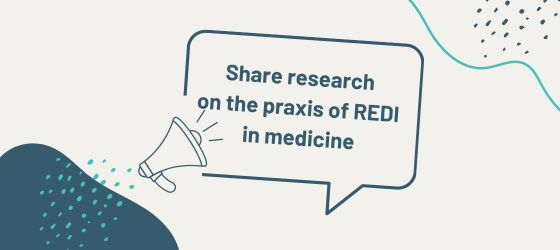
Have you’ve published or come across valuable research on the praxis of REDI in medicine? Share it today.
We especially welcome submissions of research articles that explore equity, diversity, inclusion, justice, decolonization, Indigenization, or trauma-informed practices in medicine and healthcare.
To Bear Witness: A Meaningful Conversation about my Mom on Belonging and Perseverance
Thank you for joining us on Wednesday, April 23rd, 2025, from 12:00 PM – 2:00 PM (PST), for “To Bear Witness: A Meaningful Conversation about my Mom on Belonging and Perseverance.” In this Indigenous Speakers Series session, we bore witness to a meaningful conversation between Derek Thompson and Maï Yasué, Associate Director of the REDI Office, about Derek’s mom, Maude Thompson. Maude was originally scheduled to be the guest speaker, but she sadly passed away a month before the event. A Haisla First Nations woman and Survivor of the Indian Residential School system, Maude was a thoughtful, generous and loving human being —a Mom, Grandmother, Great-Grandmother, Auntie, Sister, and Daughter—who persevered in the face of incredible hardships. For nearly 40 years, Maude served as a cook for the Tsow-tun Le Lum Society – Substance Use and Trauma Treatment Centre providing nourishment, love, support, care, and inspiration to thousands of First Nations and Indigenous people.
In memory of Maude and in honour of her life and legacy, donations can be made to the Tsow-tun Lelum Society Substance Use and Trauma Treatment Centre, where she dedicated nearly 40 years of service.

Maude Thompson,
Mom & Chef
Maude was originally scheduled to be the guest speaker, but she sadly passed away a month before the event. In her honour, we will bear witness to a meaningful conversation between Derek Thompson and Maï Yasué, Associate Director of the REDI Office, about his mother, Maude Thompson.

Derek K Thompson – Čaabať Bookwilla | Suhiltun, Proud Son & Director, Indigenous Engagement

Maï Yasué,
Associate Director of the REDI Office
Description
Written by Derek K Thompson – Čaabať Bookwilla | Suhiltun, Proud Son
On June 11th, 2008, my Mom, Maude Thompson, was in the public gallery in the House of Commons in Ottawa to bear witness to the formal statement of apology to former students of the Indian Residential School experience in Canada. My Mom has always stated over the course of her life that all she ever wanted was for someone responsible to apologize for the wrongs committed against her as a little girl while she was at the Alberni Indian Residential School. She also talks about the tensions between belonging and being dispossessed of identity, culture and language, the conflict between truth and the not-so-straight-forward-ability to be truthful, the anxieties of trying to make sense of the past and to create the opportunity for your children and grandchildren to thrive, and the goodness that comes from being generous, mindful and dignified in spite of your adversities.
My Mom has told me that she has nothing to offer whenever I’ve asked her to consider speaking in this important series, and now she’s finally agreed to be here so that her and I can talk about these important issues within the context of truth, reconciliation and redress. She has a lot to offer about her experiences as survivor of the Indian residential school experience, as a First Nations – Haisla woman, as a thoughtful and generous human being, and as a Mom, a Grandmother, a Great-Grandmother, an Auntie, a Sister, a Daughter, and as a woman who has persevered in the face of incredible hardship.
My Mom has been a cook for the Tsow-tun Le Lum Society – Substance Use and Trauma Treatment Centre for nearly 40 years, and she’s been a source of love, support, care, and inspiration for thousands of First Nations and Indigenous people. Wherever I’ve worked over the years across BC, nearly every time someone comes up to me and tells me about a fond memory they have of my Mom – a favourite meal she cooked, how she listened when seemingly no one else did, a shoulder to cry on, she became the Auntie or Mom they never had, and many other touching stories. My Mom has created an enduring legacy in the lives of many people and has given so much of herself unconditionally, and she’s done so all in an effort to simply belong and in doing so to make others feel like they also belong.
Topic: To Bear Witness: A Meaningful Conversation about my Mom on Belonging and Perseverance
Date: Wednesday, April 23rd, 2025
Time: 12:00 – 2:00 PM (PST)
What Will I Learn?
You will learn about a unique perspective about the processes of truth and reconciliation.

Continue Learning
“The time to make things happen is now. The time to seek out our individual and shared power is now.”
Learn more about REDI’s Indigenous Initiatives here
Discover more about REDI’s Indigenous Initiatives Speakers Series here
Find REDI’s Indigenous-Specific Resources here
REDI’s Refugee Experiences Book List
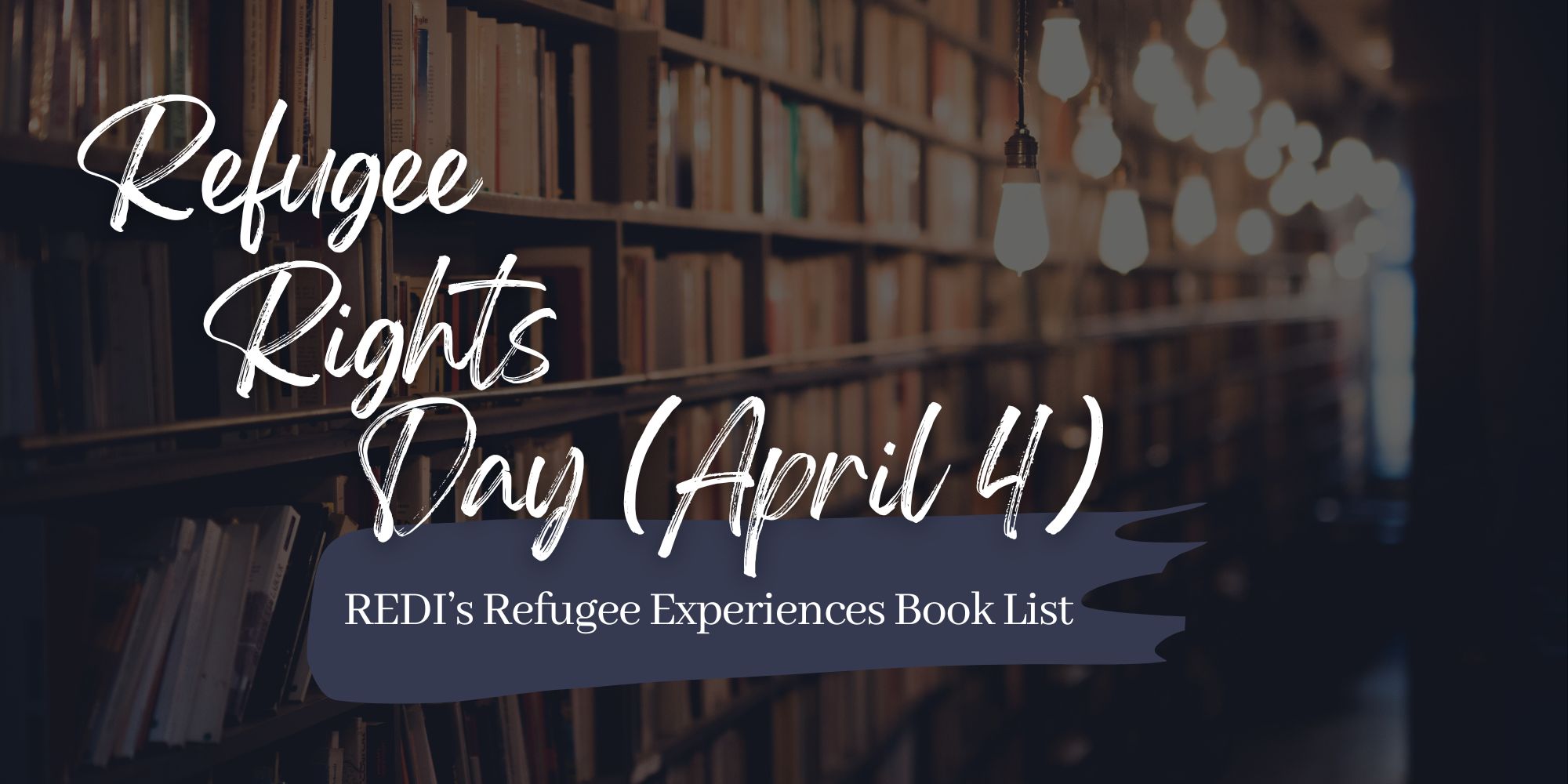
April 4th marks Refugee Rights Day, a time to reflect on the challenges faced by refugees. Explore a curated collection of diverse books that capture the resilience, courage, and humanity of refugees from around the world. From personal memoirs to fictional stories inspired by real-life events, this collection offers a window into the experiences of those forced to flee their homes in search of safety and a better future.
Gaining a deeper understanding of the struggles, triumphs, and dreams of refugees can impact your clinical practice by fostering empathy and enhancing your ability to provide culturally sensitive, and trauma-informed care. It empowers you to deliver compassionate care that respects the dignity and humanity of each individual you serve. By incorporating these insights into your practice, you can create a more inclusive healthcare environment where refugees feel seen and supported.

The Wind Knows My Name
by Isabel Allende
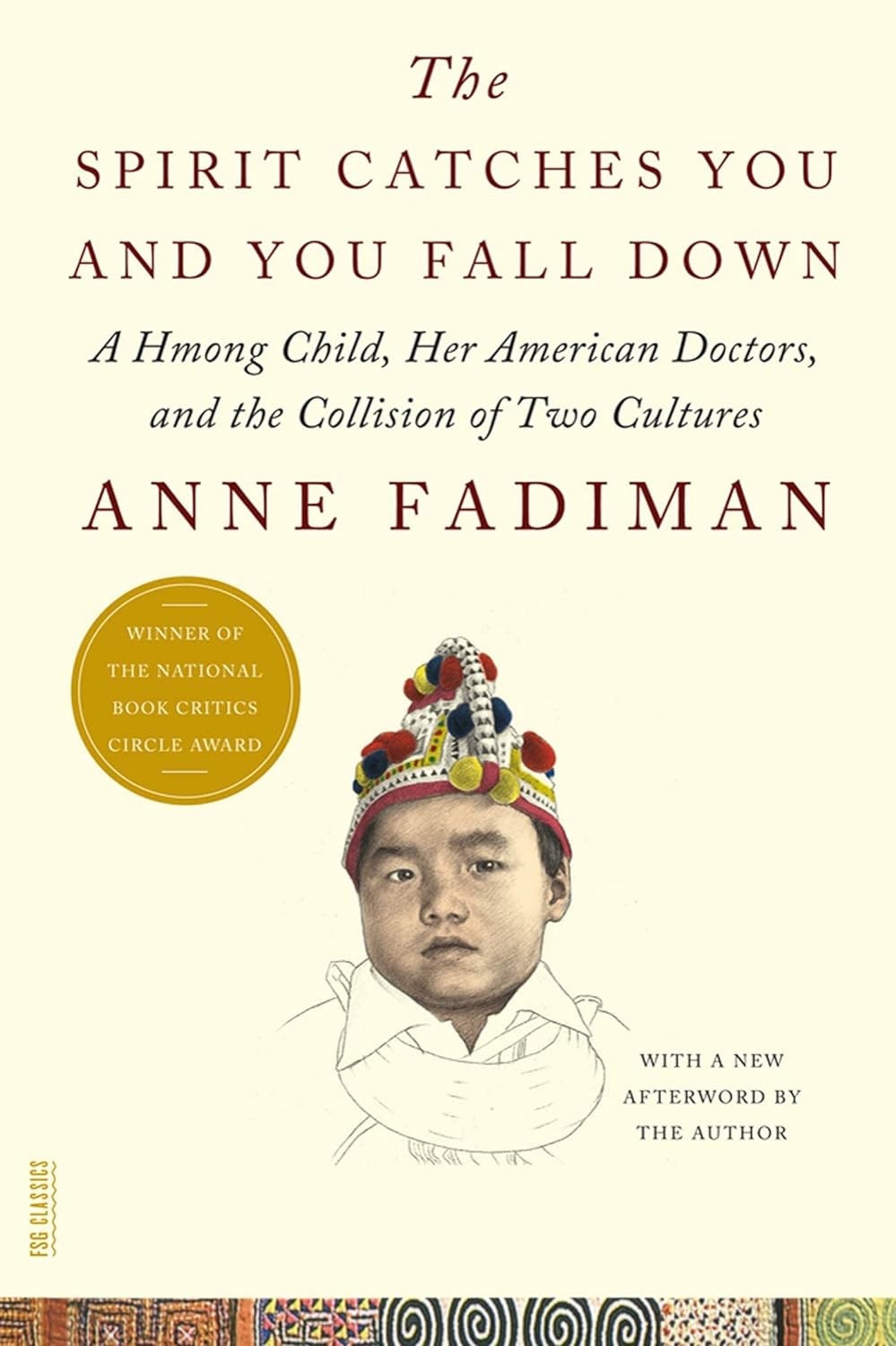
The Spirit Catches You and You Fall Down: A Hmong Child, Her American Doctors, and the Collision of Two Cultures
by Anne Fadiman
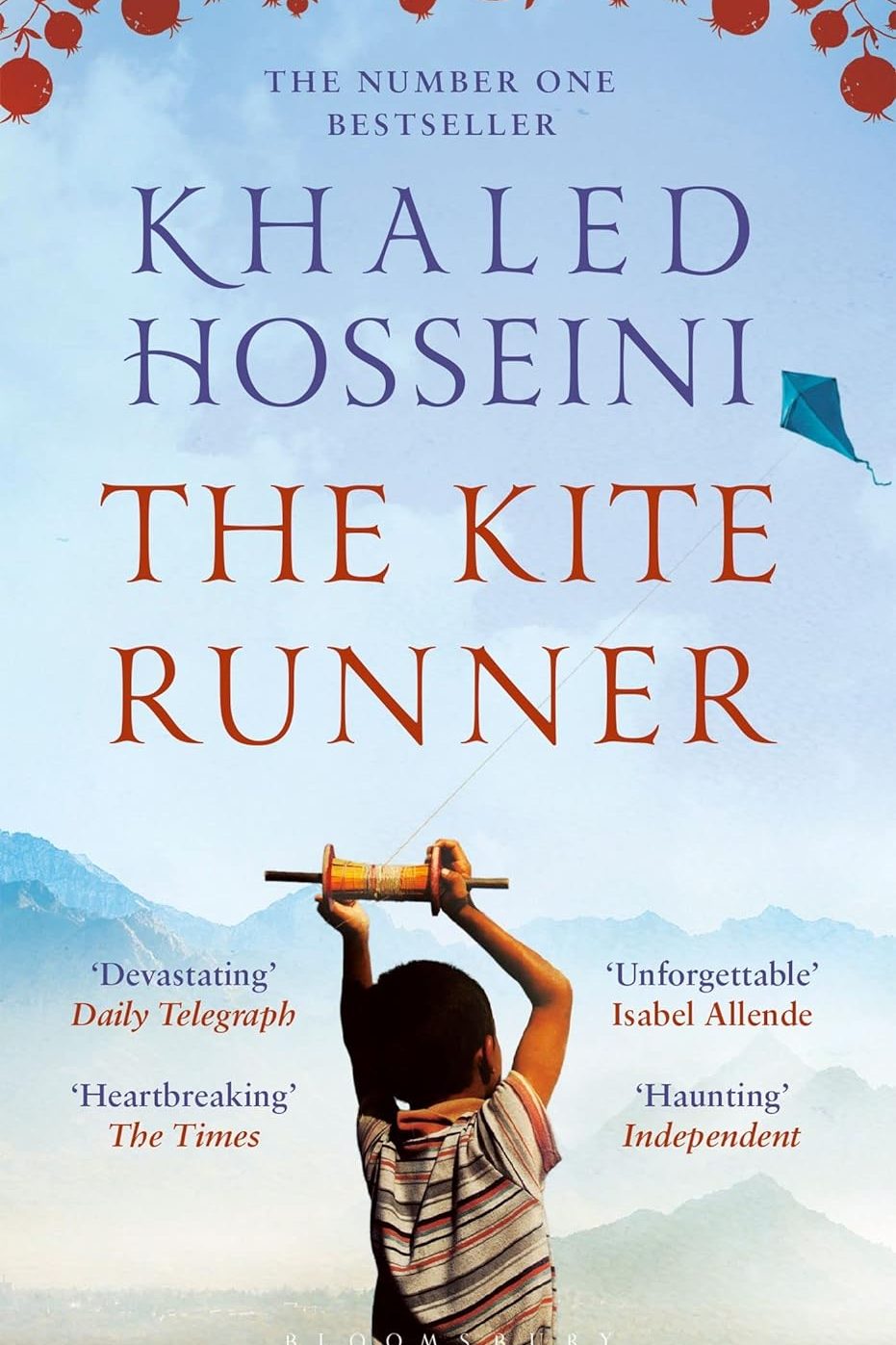
The Kite Runner
by Khaled Hosseini
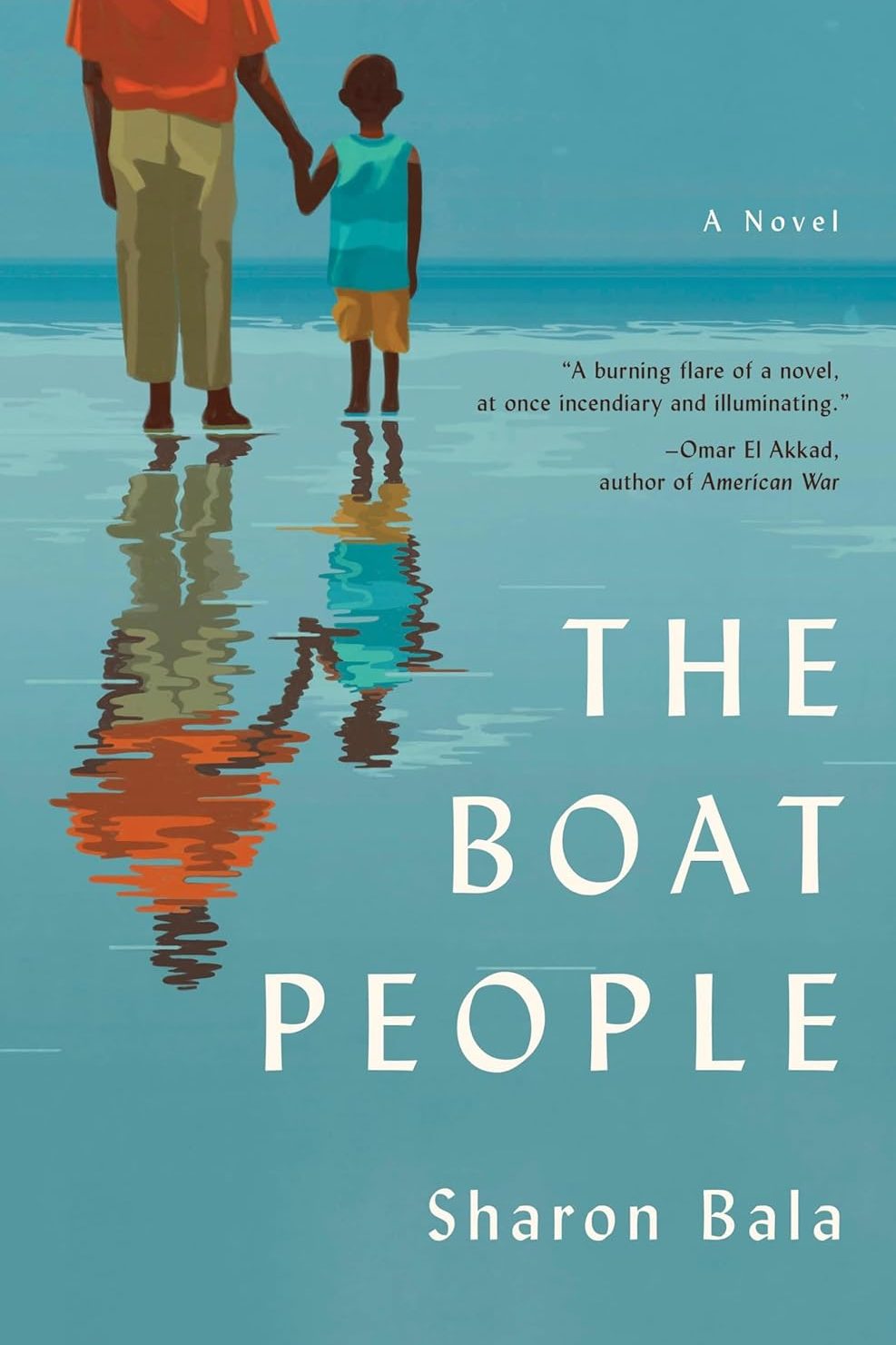
The Boat People
by Sharon Bala
Research Voices from the Field with Faisal Khosa, Jeffrey Ding, and Sabeen Tiwana

Research Voices from the Field is a new feature that showcases cutting-edge research that breaks barriers and promotes inclusion in medicine. Each edition spotlights a research publication and includes insights directly from the authors—revealing their motivations, the significance of their findings, and why the research matters for healthcare professionals everywhere.
In this third edition, Dr. Faisal Khosa, Dr. Jeffrey Ding, and Dr. Sabeen Tiwana reflect on their edited book “Equity, Diversity, and Inclusion in Healthcare: From Knowledge to Practice” and its relevance to healthcare professionals, medical educators, leaders, and policymakers in advancing inclusion in clinical practice and medical education across disciplines.

Dr. Faisal Khosa, Dr. Jeffrey Ding, and Dr. Sabeen Tiwana reflect on their edited book “Equity, Diversity, and Inclusion in Healthcare: From Knowledge to Practice” and its relevance to healthcare professionals, medical educators, leaders, and policymakers in advancing inclusion in clinical practice and medical education across disciplines.
Healthcare is at a crossroads. Equity, diversity, and inclusion (EDI) have long been essential in breaking down barriers to healthcare access and professional advancement, yet today, they are increasingly caught in political debates. Now more than ever, it’s crucial to not only defend EDI but to strengthen its foundation with practical, evidence-based solutions that lead to better outcomes for everyone.
That’s where Equity, Diversity, and Inclusion in Healthcare: From Knowledge to Practice comes in. This book brings together top experts and frontline practitioners to explore key issues like anti-racism in medicine, implicit bias, intersectionality, and the structural barriers that stand in the way of true equity. More than just theory, it offers real strategies for healthcare professionals, educators, and policymakers to create more inclusive, culturally safe spaces in clinical practice, medical education, and leadership.
We put this book together because meaningful change doesn’t happen without awareness and action. By amplifying diverse voices and real-world experiences, we hope to give healthcare professionals the tools they need to challenge systemic inequities and push for lasting change.
At a time when equity in healthcare is being questioned, we need to stand firm in our commitment to inclusion. We hope this book sparks important conversations, deep reflection, and, most importantly, real action toward a more just and inclusive healthcare system.
Equity, Diversity, and Inclusion in Healthcare: From Knowledge to Practice
Editors: Faisal Khosa, Jeffrey Ding, Sabeen Tiwana
Description
Equity, Diversity, and Inclusion in Healthcare: From Knowledge to Practice offers a comprehensive text on the landscape of equity, diversity, and inclusion (EDI) in the health professions. Each chapter is dedicated to a health profession and is authored by an expert in EDI and workforce diversity in their respective discipline (such as medicine, dentistry, nursing, pharmacy, physiotherapy, and so on). Chapters characterize the present state of workforce diversity in the discipline, chronicle historical developments, provide rationale for systemic action, and include possible solutions and interventions in an evidence-based manner.
By serving as an all-in-one reference text, this resource is meant for students, healthcare professionals, and organizational leadership who wish to understand and implement EDI in the health professions.

Have you’ve published or come across valuable research on the praxis of REDI in medicine? Share it today.
We especially welcome submissions of research articles that explore equity, diversity, inclusion, justice, decolonization, Indigenization, or trauma-informed practices in medicine and healthcare.
The First Page of a New Chapter: Leading Transformative Change for Indigenous Peoples in an Era of Truth and Reconciliation
Thank you for joining us on Wednesday, March 26th, 2025, from 12:00 PM – 2:00 PM (PST), for “The First Page of a New Chapter: Leading Transformative Change for Indigenous Peoples in an Era of Truth and Reconciliation.” In this Indigenous Speakers Series session, we had a conversation with Dr. Alika Lafontaine, an award-winning physician, social innovator, and the first Indigenous physician listed by the Medical Post as one of Canada’s 50 Most Powerful Doctors. Grounded in a mixed Indigenous ancestry of Métis, Oji-Cree, and Pacific Islander, Dr. Lafontaine has served in provincial and national medical leadership positions for two decades. Dr. Lafontaine was a driving force behind the Canadian Medical Association’s historic apology to First Nations, Inuit, and Métis Peoples. If you missed the session, watch the recording to gain a unique perspective on what it means to lead transformative change in the processes of truth and reconciliation in health care at both the provincial and national levels.
Speaker Bio

Dr. Alika Lafontaine,
President, Canadian Medical Association (2022-23);
Sir Charles Tupper Award for Political Action (2023);
Maclean’s Power List – Top Health Care Innovator (2023);
First Indigenous Physician | The Medical Post – 50 Most Powerful Doctors;
Canada’s Top 40 Under 40 (2021);
Public Policy Forum Inaugural Emerging Indigenous Leader Award (2017);
National Aboriginal Achievement Award Youth Recipient (1999).
Dr. Alika Lafontaine is an award-winning physician, social innovator, and the first Indigenous physician listed by the Medical Post as one of Canada’s 50 Most Powerful Doctors. Grounded in a mixed Indigenous ancestry of Métis, Oji-Cree, and Pacific Islander, Dr. Lafontaine has served in provincial and national medical leadership positions for two decades.
From 2013 to 2017, he co-led the Indigenous Health Alliance, one of the most ambitious Indigenous health transformation projects in Canadian history. At its peak, it represented more than 150 First Nations and successfully advocated for $68 million in funding for health transformation across the traditional territories of Nishnawbe Aski Nation, Manitoba Keewatinowi Okimakanak, and the Federation of Sovereign Indigenous Nations.
In the summer 2022, Dr. Lafontaine became the first Indigenous doctor and youngest physician to lead the Canadian Medical Association in its 156-year history. During his presidency year (summer 2022–2023), the CMA successfully advocated for the largest federal investment in healthcare since 2004 as well as achieving breakthroughs in decades-old issues like pan-Canadian licensure, health data sharing and health human resource planning. Dr. Lafontaine was also a driving force behind the CMA’s historic apology to First Nations, Inuit, and Métis Peoples, which was delivered on September 18th 2024, speaking in its capacity as the national voice of the medical profession.
Dr. Lafontaine is a Canada’s top 40 under 40 recipient, Maclean’s Top Health Care Innovator, and the youngest recipient of an Indspire Award. He continues to write and speak frequently on the politics of healthcare, implementing and scaling equity, redesigning health systems, the mechanics of reconciliation, and effective advocacy.
Moderator

Derek K Thompson – Čaabať Bookwilla | Suhiltun, Director, Indigenous Engagement
Description
Written by Derek K Thompson – Čaabať Bookwilla | Suhiltun
There are few leaders who spark a transformative and inspiring movement for all of us to take up the charge to move from the process of becoming to that of being. If history is being written in the present, and if our stories are being told today, Dr. Alika Lafontaine has created the first page of a new chapter that changes the debate of what history was and claims it as ours. He’s moved us to create a narrative that shines a light on what it means to be Canadian in an era of truth and reconciliation.
On September 18th, 2024, the Canadian Medical Association apologized for its role, and the role of the medical profession, in past and ongoing harms to First Nations, Inuit and Métis peoples in the health system. Dr. Lafontaine was instrumental in creating this historic moment, and by virtue of his leadership, he centred the priorities and aspirations of all Indigenous peoples. The cumulative effect of his work holds a new promise and a new resolve to fundamentally shift the attitudes and principles of the medical profession to commit to accountability in working with Indigenous peoples and to do better in a spirit of humility and reciprocity.
We are fortunate and honoured to welcome Dr. Alika Lafontaine to the Indigenous Speakers Series for this important and inspiring conversation. We’ll talk about the need and urgency for all of us to continue the work of reckoning with the truth and reconciling for the present day. We will also explore how to ensure that we establish a strong foundation in which Indigenous peoples can access a future healthcare system created with the best of our intentions.
Topic: The First Page of a New Chapter: Leading Transformative Change for Indigenous Peoples in an Era of Truth and Reconciliation
Date: Wednesday, March 26th, 2025
Time: 12:00 – 2:00 PM (PST)
What Will I Learn?
You will gain a unique perspective on what it means to lead transformative change in the processes of truth and reconciliation in health care at the provincial and national levels.

Continue Learning
“The time to make things happen is now. The time to seek out our individual and shared power is now.”
Learn more about REDI’s Indigenous Initiatives here
Discover more about REDI’s Indigenous Initiatives Speakers Series here
Find REDI’s Indigenous-Specific Resources here


